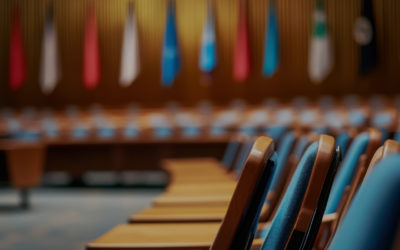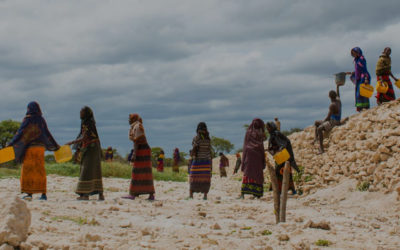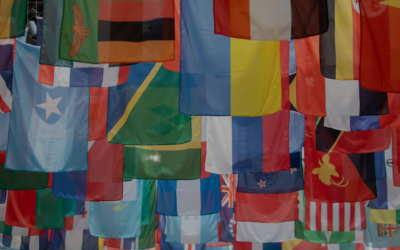The immense challenges to national, regional and international security necessitate a dramatic transformation of the concept of international security.
Humanity is facing existential security threats and challenges from climate change, environmental disasters, widespread poverty, inequality and discrimination, conflicts, terrorism, and unconscionable governance. Powerful countries are challenging the ground rules of international law as well as the existence of universal human rights norms. For international security thinkers and actors, it cannot be business as usual.
The first thing to note is that the UN Charter refers to international peace and security. These are related but independent terms. A study of the Charter confirms that the security envisaged in the Charter is generic, meaning whatever threatens the security of humanity, nationally, regionally or internationally.
This brings us to a point made some time ago by Barry Buzan in People, States and Fear: international, regional, and national security must be grounded in individual security. Since Buzan advanced this view, even though the concept of human security has entered the international discourse, no attempt has yet been made to develop an international security architecture around the centrality of human security.
To be sure, UNDP‘s Human Development Reports, the Millennium Development Goals and the Sustainable Development Goals have recognised the importance of taking the human factor into account in policies and strategies for advancing human welfare. SDG 16 does envisage the pursuit of development grounded in peace, equitable and democratic societies governed on the basis of the rule of law and respect for human rights and fundamental freedoms. But the implementation of SDG 16 has so far been an exercise of dancing with shadows: we have so far seen little substance.
How are we to modernise the concept of international security in the world of the UN and the world of the academy? The first requirement is to build on the necessity for every country to have in place an adequate and effective national protection system. An adequate and effective national protection system is one in which the constitution and laws of a country incorporates peremptory norms of international law, including fundamental norms of human rights; in which the judiciary is independent and can draw upon international human rights norms; in which there is a national human rights institution; in which human rights are taught in schools and institutions of learning; and in which an effort is made to detect and head off potential sources of conflict. Enhancement of national protection systems was a core plank of the reform agenda of Secretary-General Kofi Annan, his famous ‘Action 2’ – which we helped draft.
The concept of an adequate and effective national protection system has faded from view these days and it is imperative to bring it back to centre stage. UN human rights treaty bodies, the Universal Periodic Review of the Human Rights Council, and the Office of High Commissioner for Human Rights do endeavour to encourage the strengthening of national protection systems, but, given the international politics of the day, they operate mostly with silken gloves. The international security community can make an invaluable contribution here by keeping under scrutiny the national protection system of every country and constantly striving to make each system adequate and effective.
A way exists to do this: In recent years, the UN High Commissioner for Human Rights has been writing to each Government after it has reported under the UPR process, encouraging it to take concrete action to follow up on recommendations it has accepted during the review of its national report. The High Commissioners’ letters each contain an Annex summarising measures needed as regards: the ratification of human rights treaties, the reflection of such treaties in national legislation, the rectification of instances of inequality and discrimination, the protection of groups at risk, the protection of civil and political rights as well as economic and social rights, the protection of indigenous populations and minorities, the protection of disabled persons, displaced persons, refugees, migrants and the victims of trafficking.
The High Commissioners’ letters and Annexes are publicly available on the website of OHCHR and, taken together, provide the best snapshot available of the state of the national protection system of every UN Member State. We are in the course of publishing A Global Handbook of National Protection Systems that will reproduce the High Commissioners’ communication to the 193 Member States of the UN.
Embedding national protection systems in a modernised concept of international security must be accompanied by three other fundamental transformations in our thinking about international security in the future. The international law of the future must become an international law of security and protection. Historically, international law has operated as a facilitator of interaction among States. Then it sought to take on an orientation of promoting international cooperation, followed by an orientation of promoting human welfare. Now there must be a quantum leap forward: international law must become, also, the law of security and protection.
What this means, in practical terms, is that the central organs of authority in the international community, such as the Security Council and the Human Rights Council, must shift gears and recognise that they need to operate for the protection of the welfare of humanity and its habitat. The Security Council, in particular, must become an organ of protection.
A related conceptual shift is needed on the part of the International Court of Justice. The Court has so far focused on deciding on cases brought before it and on rendering advisory opinions sought by, for example, the General Assembly. But its jurisdiction, according to Article 36 of its Statute, extends to ‘all matters specially provided for in the Charter’. Because there is no other UN organ that can do so, the Court should be ready to provide normative guidance on issues such as the duties of Governments to act for the protection of the planet in the face of climate change; the mass movement of people across borders due to climate change or natural disasters; and vaccine equity in the face of pandemics. We have argued the case for this in our recently published book, Modernizing the Role of the International Court of Justice.
To conclude: traditional approaches to international security will no longer suffice. We need a modernised concept of international security grounded in the four pillars we have argued for in this essay: the centrality of national protection systems; deploying international law as a law of security and protection; recognizing the protection role of the UN Security Council and the Human Rights Council; and calling upon the International Court of Justice to serve as an impartial arbiter in respect of issues affecting human survival that Governments, left to themselves, are unable to come to decisions. In short, we need to think anew about the need for a concept of international security suited to the dangerous times we live in.
Previously Chief Speech-writer for the UN Secretary-General
First Swiss Chair of Human Rights, The Geneva Graduate Institute









0 Comments